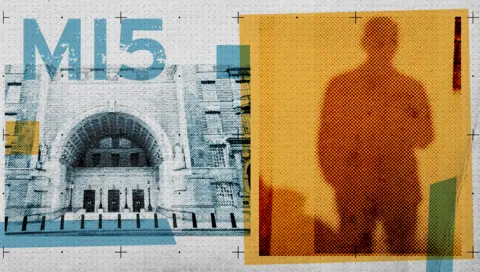MI5 has admitted to providing false evidence in court while defending its handling of a neo-Nazi state agent who violently attacked his girlfriend with a machete. Despite maintaining a policy of neither confirming nor denying the identities of informants, MI5 had, in fact, disclosed the agent’s status in phone calls to a journalist, urging them not to investigate the individual, known publicly as Agent X. The deception persisted in multiple legal proceedings until evidence, including a recorded phone call, proved otherwise.
The falsehoods were first presented in a case where the government sought to block the BBC from reporting on Agent X’s actions, successfully preventing the broadcaster from revealing his identity as a foreign national. The lie was then repeated in a specialist court where the victim, known as Beth, was seeking accountability for MI5’s handling of its agent. It was again reiterated during a judicial review, where Beth challenged the previous ruling.
A senior MI5 officer, who disclosed Agent X’s status to the journalist, claimed he had been legally authorized to do so, contradicting MI5’s official position. Meanwhile, MI5 Director General Sir Ken McCallum personally called the BBC’s Director General to cast doubt on the accuracy of the initial report, incorrectly labeling it as inaccurate. Following the exposure of these lies, MI5 has now issued an “unreserved apology” to the BBC and the courts, acknowledging a “serious error” and assuming full responsibility.
This revelation raises pressing questions about MI5’s credibility in legal proceedings and the integrity of its secrecy policies. Sir Ken McCallum, under increasing pressure, must now clarify what he knew about the misleading evidence, given that the disclosure of Agent X’s identity had reportedly been approved by senior MI5 officials and legal advisors. The controversy also casts doubt on the reliability of MI5’s testimony in other cases, particularly those involving secret hearings that exclude affected individuals, such as Beth, the families of terror attack victims, and those stripped of UK citizenship.
Beth’s case will now return to the specialist court, which will reassess whether MI5’s conduct breached her human rights and whether its evidence should continue to be heard in closed sessions. Her lawyer, Kate Ellis from the Centre for Women’s Justice, has voiced concerns about MI5’s transparency and the trustworthiness of its court submissions.
The High Court permitted the BBC to report on MI5’s false statements after it challenged a corporate witness statement from a deputy director in the Security Service, known as Witness A. The statement falsely claimed that MI5 had adhered to its policy of neither confirming nor denying agent identities and misrepresented the content of the phone calls between the journalist and an MI5 officer. During the court hearing, Mr. Justice Chamberlain confirmed that MI5’s evidence had been “false.”
Home Secretary Yvette Cooper has appointed Sir Jonathan Jones KC, former head of the government legal service, to conduct an independent review into how MI5 came to provide false testimony and to recommend safeguards ensuring future court submissions are accurate. She had previously called for an independent assessment in 2022 after reports emerged of Agent X’s abuse, emphasizing the need to examine how MI5 addressed “the appalling and dangerous crime of domestic abuse.”
MI5 has launched an internal investigation, which may result in disciplinary action. Following the court ruling, it was revealed that Sir Ken McCallum had personally contacted the BBC in 2021 to discredit its reporting. However, the BBC stood by its findings, and a judge later ruled that the story was based on a credible evidential foundation.
Government lawyer Sir James Eadie KC stated that MI5’s disciplinary process “indicates the seriousness with which this is being taken” and assured the court that updates would be provided in April. The government has defended MI5’s longstanding secrecy policy but acknowledged that providing false information to the court is “a very serious matter.”
The exposure of MI5’s false testimony will likely impact its credibility in future legal proceedings, particularly those relying on closed evidence. MI5 has conceded that courts must be able to “trust completely any evidence it provides.” However, this case intensifies concerns over whether the secrecy policy obstructs accountability, allowing agents to evade responsibility for criminal behavior.
Given that the disclosure of Agent X’s identity had reportedly been sanctioned by MI5 lawyers and senior officials, the Home Office and Cabinet Office should have been informed, per protocol. Despite this, a government spokesperson stated that ministers and civil servants were not consulted on the matter.
In a statement to Parliament, Home Secretary Yvette Cooper reaffirmed support for MI5’s secrecy policy but acknowledged the gravity of the situation. In a new court submission, Witness A issued a formal apology for providing false evidence, claiming it was based on “a sincerely held belief” and “the information I was given at the time.”
This case underscores the critical need for greater scrutiny of MI5’s conduct and raises fundamental questions about its accountability before the courts and the public.




